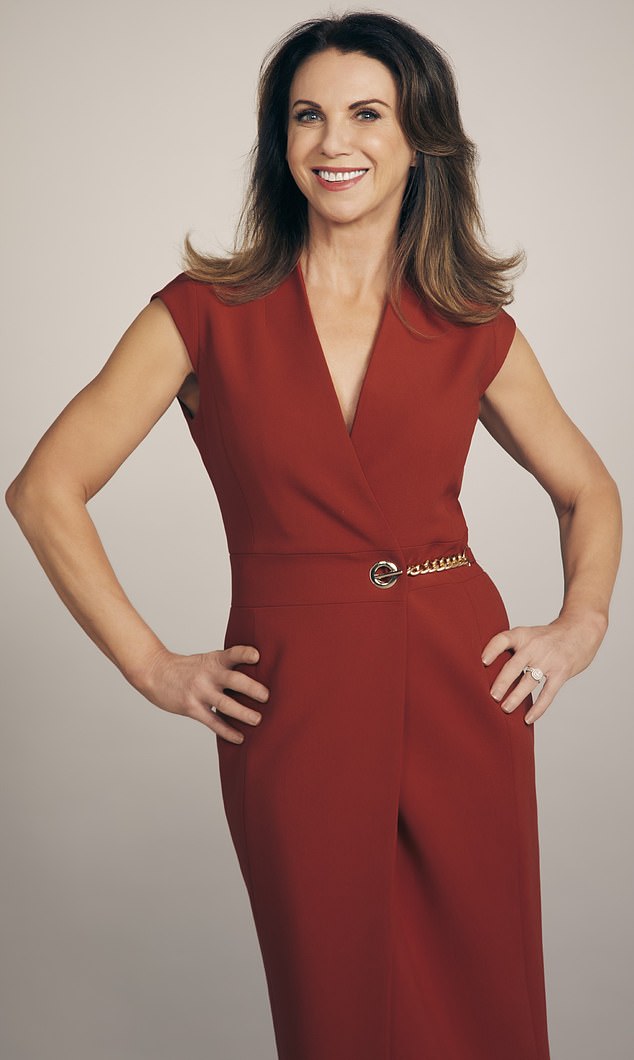The standard advice if you’re miserable in a marriage is simple: leave.
But life isn’t always that uncomplicated.
Money, health, religion or circumstance can glue you in a place you desperately don’t want to be – and feeling trapped in an unhappy marriage is one of the most profoundly lonely and painful places of all.
I want to reiterate before I start, that decisions in these circumstances are highly personal and intensely difficult.
Only you can decide what choices to make but here’s some information that might make it all just a little easier.
Your partner has a terrible illness
‘We don’t just “not get on”, I hate my husband,’ Esther tells me. ‘He’s behaved badly for years. I stayed because my self-esteem was so low – thanks to his constant belittling. Finally, I told friends what was really going on in my marriage and with their support, I was working up the courage to tell him I was done. Instead, he told me he’d been diagnosed with MS.’
She pauses. ‘That was one year ago. He’s OK now but I know what I’m in for: my life will now be spent caring for a man who doesn’t deserve the kindness that will take. But what would people say if I upped and left him now? He’s a horrible man but he’s still a human being.’

UK-based expert Tracey Cox (pictured) has revealed why it can be hard to leave a relationship – even a bad one
Stories like Esther’s are far too easy to find. It’s also far more common for women to stay in an unhappy marriage to care for a sick spouse than men.
Other women in this situation were in a different but equally painful predicament. They said they loved their husband when he was well but now find themselves, looking after a man they don’t recognise.
‘He’s like an old man I’ve never met before,’ one woman told me. ‘He’s been sick for seven years, can’t talk properly and doesn’t know me half the time. I don’t have a life, and I don’t want to live this one. But how can I leave?’
Leaving anyone when they are extremely unwell is difficult and emotionally traumatic. Which is why my first piece of advice is to make sure YOU are emotionally supported no matter what you decide.
This is such a big issue, it’s impossible to do more than just scratch the surface but here’s some thinking points.
If your partner was physically or emotionally abusive when well, you have no obligation to stay just because they have been given a diagnosis. There are many domestic abuse organisations that will help you leave safely. Tell your spouse’s family or friends you have left (or are intending to). If it’s appropriate, also let their doctor know your situation: that you can’t be their carer. Obviously, also contact a lawyer and seek legal advice.
Find out what you’re likely to be up for: Will it be a matter of months or a year or two looking after them or more like a decade? Will you be supported by friends, family or carers? In other words, how long are they likely to live and how bad is it likely to get? You might decide it’s easier and makes sense financially to stay if it’s short term. If you’re going to be the situation for many years, it might be another story.
Was your partner aware you weren’t happy before the diagnosis? If the answer is yes, it’s (a little) easier to say, ‘I’m sorry this has happened, but it doesn’t change my decision to leave’. Yes, people close to your partner won’t be thrilled with the news and some may consider it callous. What these people think of you, though, really is irrelevant. It’s unlikely you will stay in touch. If you intend to, chances are they realise your partner isn’t a saint and won’t judge.
If you’re too riddled with guilt to leave: Get as much help as you can: family, friends, carers, carer’s support. Carve out as many pockets of independence as you can – people to step in so you can have time off, time away and time to enjoy your life. Some people remain married but find an excuse to live separately. ‘I lied and said I had to move out for work reasons. It softened the blow,’ one person said.

It’s your life, too. Love shouldn’t be unconditional if your partner has made your life miserable. Even if it wasn’t their fault that you fell out of love with them, it doesn’t mean you have to pay the penance of staying until the bitter end.
You’re trapped financially
‘I left work to raise our kids and never rebuilt my career. Now I’m 50, he’s the breadwinner and if I walk out, I’ll be broke. It’s terrifying,’ one woman told me. ‘I stay because he pays the mortgage. But I hate myself every time I hear his key in the door,’ another lamented.
While it’s far more likely both of you work these days, it’s still usual for the man to earn more. If you have children together, you’re in a better position to get financial support from your spouse if you leave. But if you don’t – or earn more –get advice from a reputable lawyer. Get it anyway. Most lawyers will give one free consultation. Take advantage of it.
Think smart: A friend of mine stayed in a loveless marriage for years because she didn’t have the heart to tell her clueless husband she didn’t even like him, let alone love him. The other, less altruistic, reason to stay was the big chunk of money he was due to inherit from his elderly parents. Divorce is costly and splitting assets often means both lose on lifestyle. She waited until he inherited the cash, sought advice from a lawyer, then left. ‘I deserved it for all those years of pretending to be the adoring wife purely to prop up his ego.’ Think before you leap. Is now the right time?
Do some sleuthing: If you think your spouse won’t pay fair if you leave, make sure you’re aware of all the bank accounts and assets your partner has. If you can log in, take screenshots of current balances and investments.
Explore other ways to boost your income. Do you qualify for benefits? Is there a friend you could move in with to share expenses to maintain your lifestyle? Retrain or explore part-time jobs.
Money isn’t everything. It might be a struggle to start, but one that’s worth it. ‘I left my expensive house and let myself into a very basic rental flat with nothing but two bin bags full of clothes. But I felt relief, not panic,’ one recently divorced man told me. Circumstances change. You might meet someone else or get a new, better job.
You’re staying for the sake of the children
‘I tell myself every day that I’m staying for the kids. They adore their dad, and I can’t bear the idea of them being dragged from house to house with a suitcase. But the truth is, I feel invisible. We don’t fight, we just exist side by side, like flatmates who happen to share children. I wonder if they’d be better off with one happy parent than two miserable ones but I can’t bring myself to pull the trigger.’
Sophie’s story is a familiar one that many women will relate to. It’s admirable to put your children’s needs first – but it’s often at great cost. ‘I cry in the shower most mornings, so they don’t see,’ another woman told me. ‘They think we’re fine and their smiles make it almost worth it. But I feel like I’m slowly disappearing.’
The irony of this dilemma is that staying ‘for the children’ might be harming rather than helping them.
The children might NOT benefit from you staying. Even if (you’re hoping) things seem fine on the surface, children notice tension. A silent, loveless house can hurt them more than a split. If there’s obvious conflict – arguments, bitterness, clear resentment and dislike – research show you may do more damage staying than leaving. Children in high-conflict homes often feel caught in the middle and experience high anxiety and low self-esteem. You think you’re providing emotional safety and stability by staying but putting them through a divorce is sometimes preferable to get them out of a toxic environment.
There’s evidence that younger children suffer more. If you can wait until your youngest is five, there’s evidence they will fare better. As a child of divorce – my parents split when I was 15 – I found them doing it during my teens quite difficult (though here I am now, perfectly fine). At the end of the day, the age your kids are when they leave is less important than how you both handle the divorce.
Divorce amicably and you’ll dramatically reduce the damage. The level of hostility, how parents communicate, whether children feel loved and wanted in each home, not having to take sides or hear either parent rubbish the other – all these factors have a huge impact on how your children will cope.
You’re staying for cultural or religious reasons
‘In my family, divorce is a dirty word. I haven’t felt loved in years but the thought of being shunned terrifies me. Everyone around me thinks marriage is forever, no matter what.’
Samira’s story is echoed by Fatima. ‘The whole community watches. If I leave, I’ll be alone, judged and probably cut off from my friends and family. Staying is like wearing a mask – I smile at events, I play the perfect wife, but at home I’m dying a little each day.’
For some women, leaving an unhappy marriage isn’t just a personal decision – it’s tangled in family expectations, religious rules and community pressure. The fear of judgement, ostracism or shame can be as powerful as financial or emotional barriers.
Seek confidential support. Organisations like Women’s Aid or other faith-based women’s networks provide guidance and advice. Build a personal support network. Are there friends or allies you know who won’t judge you? Online communities are anonymous and private and can provide solidarity and advice. Some religious authorities or leaders may offer compassionate advice about marriage difficulties without forcing you to stay.
Create small zones of independence. Find ways to nurture your own life outside the marriage: classes, volunteering, seeing friends, part-time work. Emotional independence strengthens your confidence, making eventual decisions easier.
Plan don’t panic. Leaving may feel impossible now but mapping options step by step – where you could live, what income you’d need, who could support you – makes it realistic when the time comes.
Women in your situation often face layers of fear – family, community, religion and practical concerns. The first step isn’t leaving; it’s reclaiming agency and understanding your options and building support.
You’ll find ‘Great Sex Starts at 50’ at all good bookshops. Her product ranges are sold exclusively through lovehoney.











